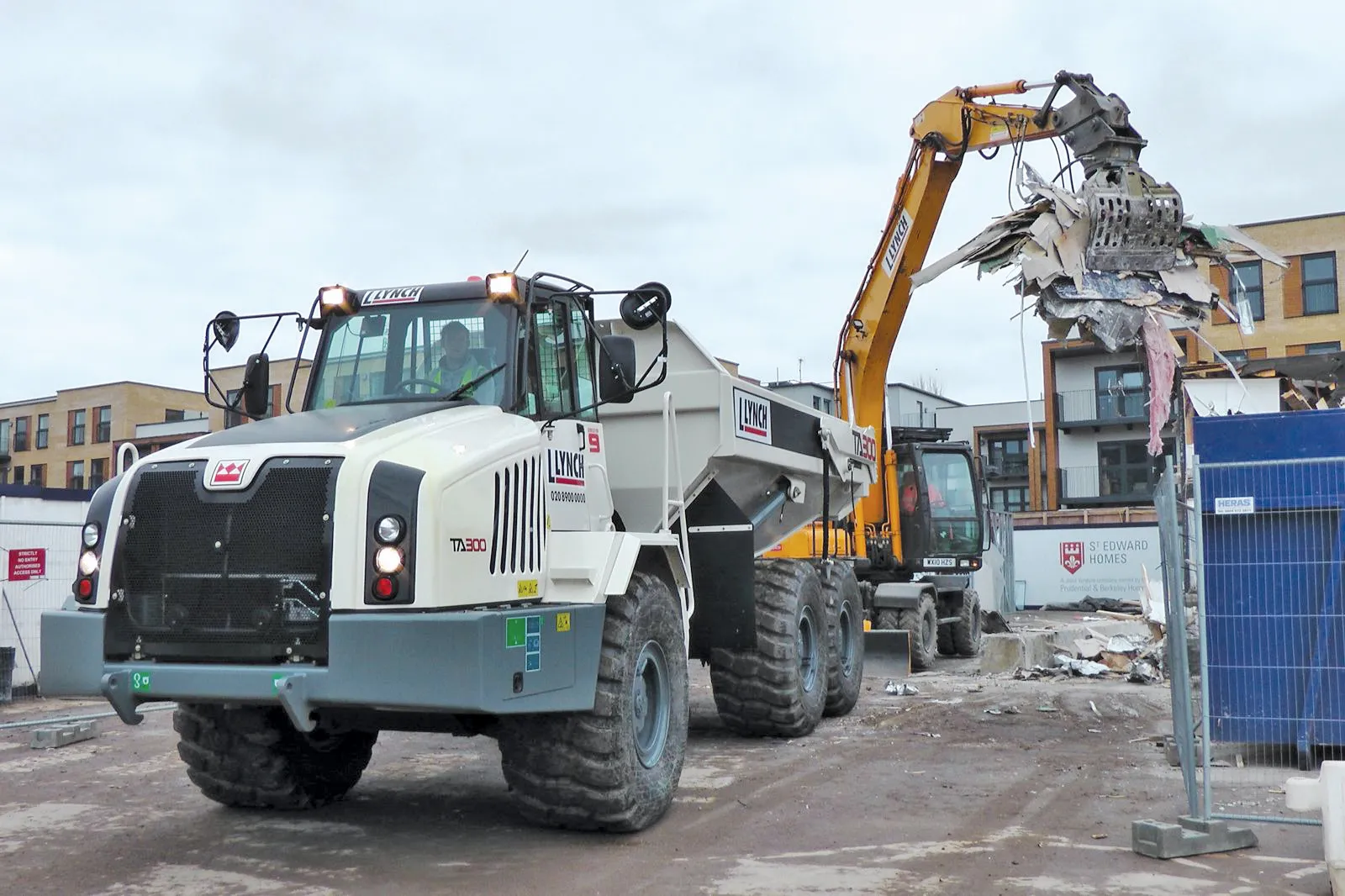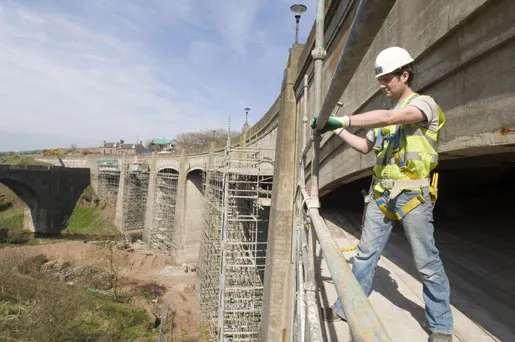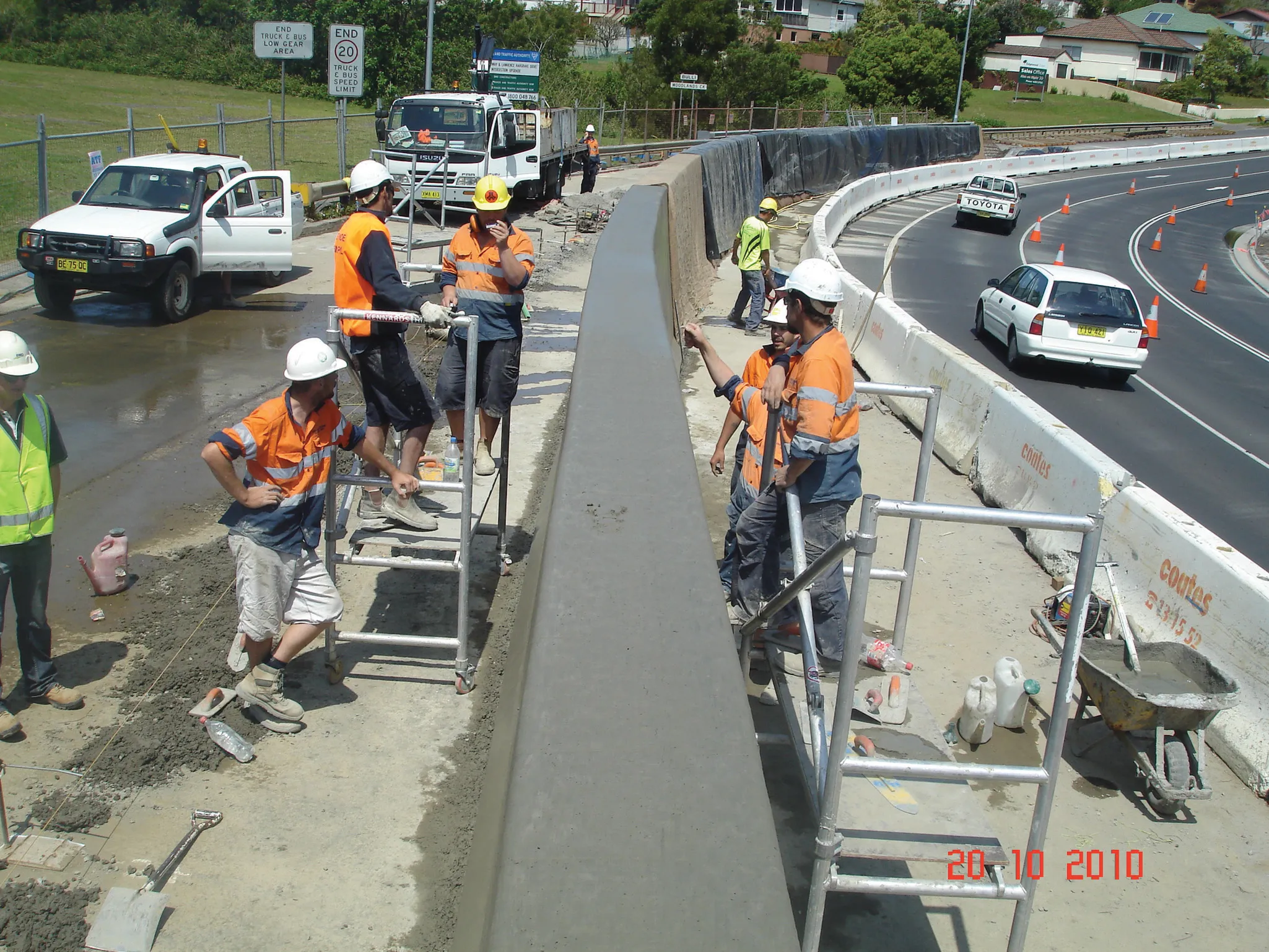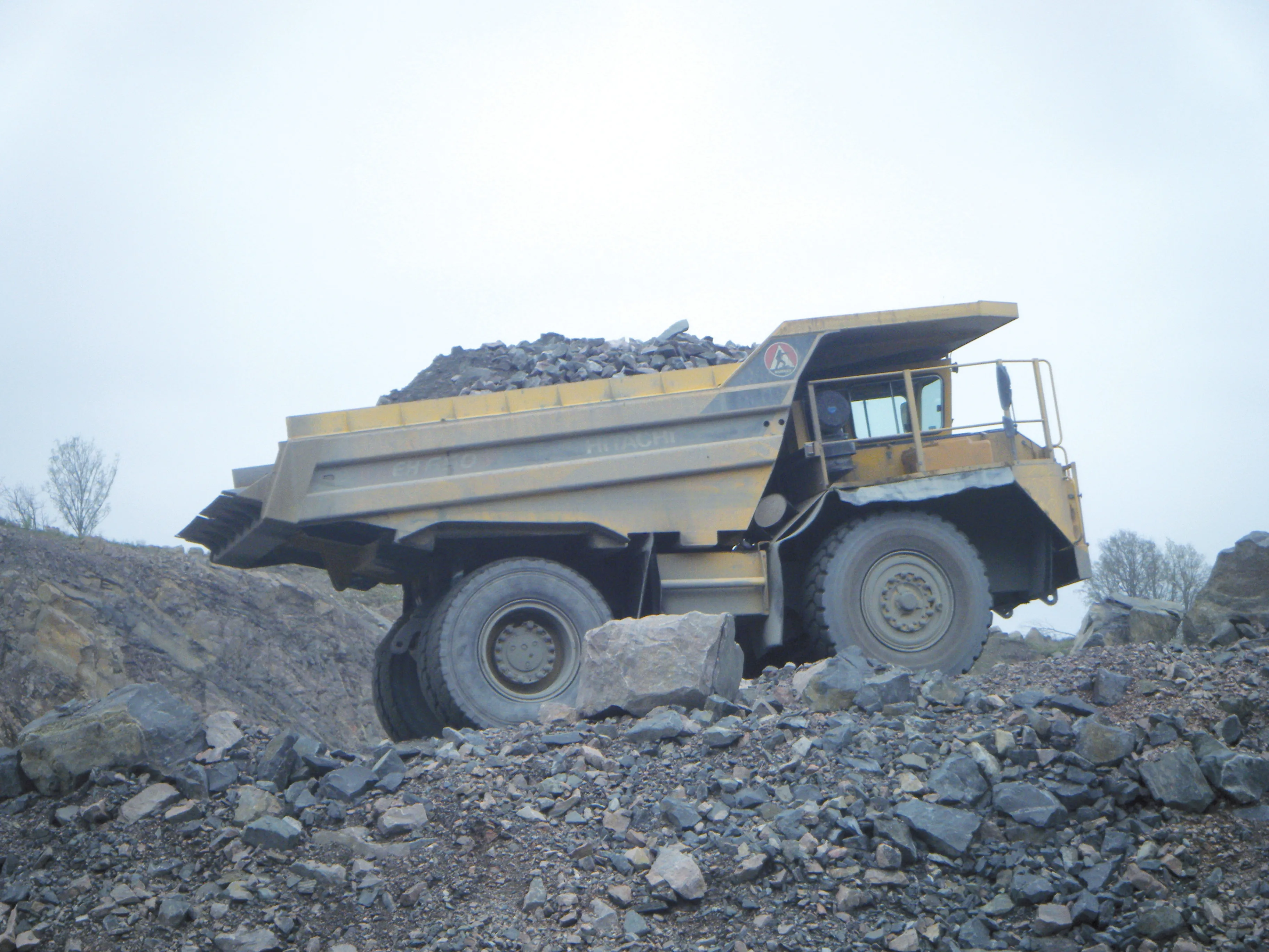The Mersey Gateway Project achieved another milestone as the first deck span for the elevated north approach viaduct was completed.
Work started on site in May 2014 to build a six-lane toll bridge over the Mersey River between the towns of Runcorn and Widnes and opening is set for the autumn of 2017. As well as construction of the new bridge, works include the upgrading of 7km of highway to the north and south of the river - the main bridge is 2.2km long – and changing traffic flow so the majority of tra
April 4, 2016
Read time: 4 mins
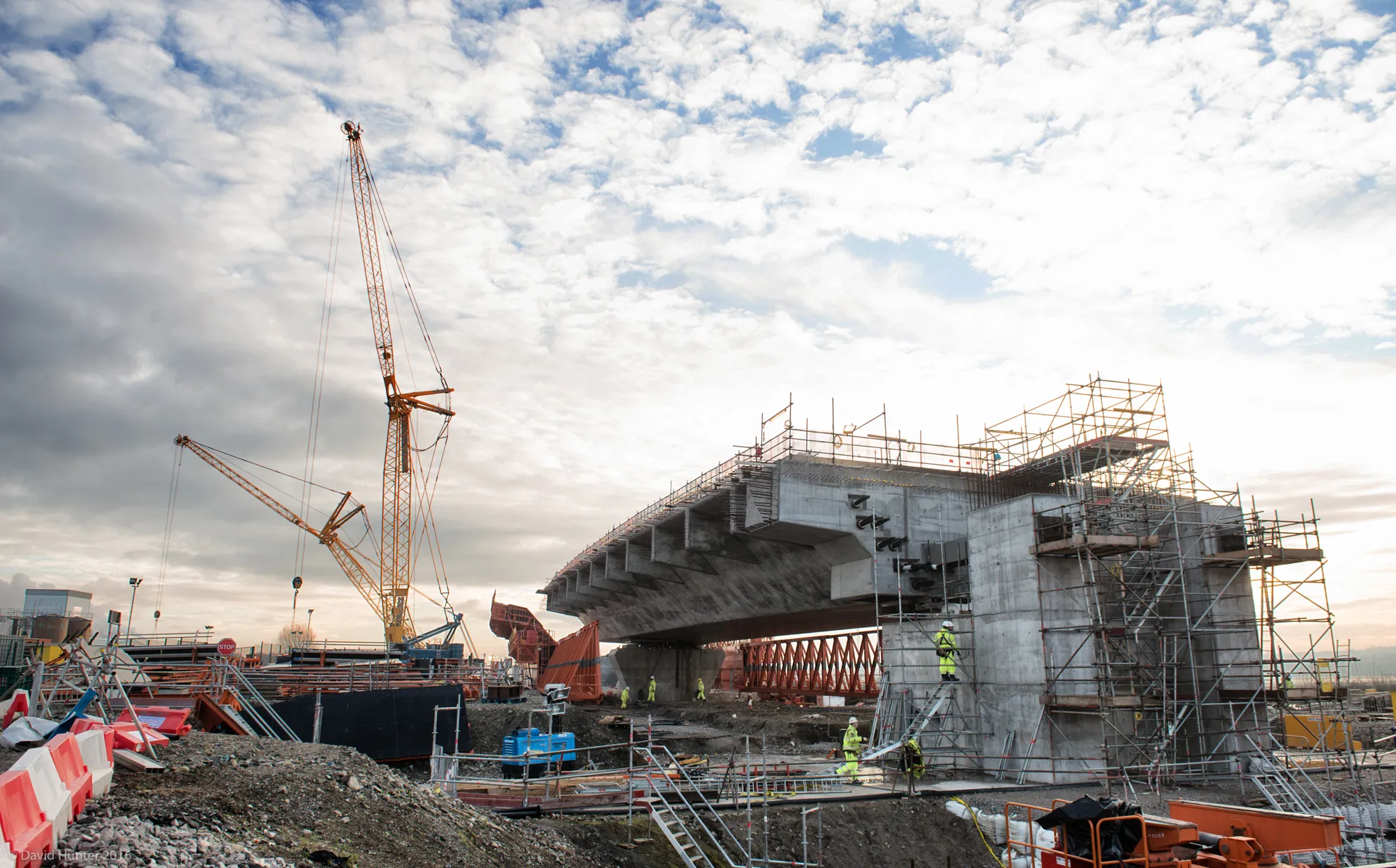
The Mersey Gateway Project achieved another milestone as the first deck span for the elevated north approach viaduct was completed.
Work started on site in May 2014 to build a six-lane toll bridge over the Mersey River between the towns of Runcorn and Widnes and opening is set for the autumn of 2017. As well as construction of the new bridge, works include the upgrading of 7km of highway to the north and south of the river - the main bridge is 2.2km long – and changing traffic flow so the majority of traffic uses the new bridge.
The reinforced concrete deck span was revealed when Merseylink's movable scaffolding system (MSS) 'Trinity' moved to its second casting position. It is the first of 11 spans that will be cast by the MSS for the deck of the elevated approach viaduct on the north side of the River Mersey.
The MSS, which acts as a giant concrete mould, was specially designed for the6126 Mersey Gateway Project. It is being used to build the two elevated approach viaducts over the Mersey estuary.
The span connects the beginning of the approach viaduct from the north abutment in Widnes to the first supporting pier. It measures around 60m long and 18m wide and is angled at 5 degrees to allow vehicles to travel safely around the curve of the approach road.
Construction teams worked around the clock to get the span ready. This involved pouring 1,146m3 of concrete into the MSS non-stop over 34 hours.
"This is a real achievement for the project and a milestone that we've been looking forward to with anticipation,” said Declan Cannar, Merseylink's general foreman in charge of the MSS operation. “We're now busy preparing the MSS so it's ready to cast the next section."
The approach viaduct deck is being constructed in three phases. The deck spans are constructed first by the MSS, then a deck slab is built on top of the span, and finally the outer deck or ‘wings' are built by a wing traveller machine to provide the full six-lane width of the approach road.
The MSS has moved to its second casting position ready for work to begin on the next span, which will be cast in March.
Meanwhile, Total Plant Hire, based in Manchester, has hired out two new Doosan DA30 30tonne articulated dump trucks (ADTs) fitted with high flotation tyres for the project.
Like all695 Doosan ADTs, the DA30 model features an articulation hinge behind the turning ring to provide equal weight distribution to the front axle even during maximum steer articulation. This together with a free-swinging rear tandem bogie ensures equal distribution of weight to each wheel and delivers permanent six-wheel contact and drive for equal power distribution and excellent performance on difficult terrain.
The specially shaped body and sloping frame on the DA30 offers a low centre of gravity and perfect weight distribution. The Doosan machines purchase by Total Plant Hire have been equipped with high flotation tyres to further help traction in the tough working conditions.
A temporary trestle bridge has been built as an access platform for workers build the new structures in the river. Accessed from the trestle bridge, temporary cofferdams have been built to enable foundations to be laid for the three pylons that will support the main bridge. The Doosan DA30 ADTs are removing earth excavated from the cofferdams and from others across the site.
The Doosan DA30 ADTs are also being for construction of supporting piers for the elevated approach viaducts, which cross the Manchester Ship Canal and the St Helens Canal. Each approach viaduct is supported by a number of supporting, there being 20 in total. These will march across the salt marsh on either side of the estuary.
Work started on site in May 2014 to build a six-lane toll bridge over the Mersey River between the towns of Runcorn and Widnes and opening is set for the autumn of 2017. As well as construction of the new bridge, works include the upgrading of 7km of highway to the north and south of the river - the main bridge is 2.2km long – and changing traffic flow so the majority of traffic uses the new bridge.
The reinforced concrete deck span was revealed when Merseylink's movable scaffolding system (MSS) 'Trinity' moved to its second casting position. It is the first of 11 spans that will be cast by the MSS for the deck of the elevated approach viaduct on the north side of the River Mersey.
The MSS, which acts as a giant concrete mould, was specially designed for the
The span connects the beginning of the approach viaduct from the north abutment in Widnes to the first supporting pier. It measures around 60m long and 18m wide and is angled at 5 degrees to allow vehicles to travel safely around the curve of the approach road.
Construction teams worked around the clock to get the span ready. This involved pouring 1,146m3 of concrete into the MSS non-stop over 34 hours.
"This is a real achievement for the project and a milestone that we've been looking forward to with anticipation,” said Declan Cannar, Merseylink's general foreman in charge of the MSS operation. “We're now busy preparing the MSS so it's ready to cast the next section."
The approach viaduct deck is being constructed in three phases. The deck spans are constructed first by the MSS, then a deck slab is built on top of the span, and finally the outer deck or ‘wings' are built by a wing traveller machine to provide the full six-lane width of the approach road.
The MSS has moved to its second casting position ready for work to begin on the next span, which will be cast in March.
Meanwhile, Total Plant Hire, based in Manchester, has hired out two new Doosan DA30 30tonne articulated dump trucks (ADTs) fitted with high flotation tyres for the project.
Like all
The specially shaped body and sloping frame on the DA30 offers a low centre of gravity and perfect weight distribution. The Doosan machines purchase by Total Plant Hire have been equipped with high flotation tyres to further help traction in the tough working conditions.
A temporary trestle bridge has been built as an access platform for workers build the new structures in the river. Accessed from the trestle bridge, temporary cofferdams have been built to enable foundations to be laid for the three pylons that will support the main bridge. The Doosan DA30 ADTs are removing earth excavated from the cofferdams and from others across the site.
The Doosan DA30 ADTs are also being for construction of supporting piers for the elevated approach viaducts, which cross the Manchester Ship Canal and the St Helens Canal. Each approach viaduct is supported by a number of supporting, there being 20 in total. These will march across the salt marsh on either side of the estuary.


